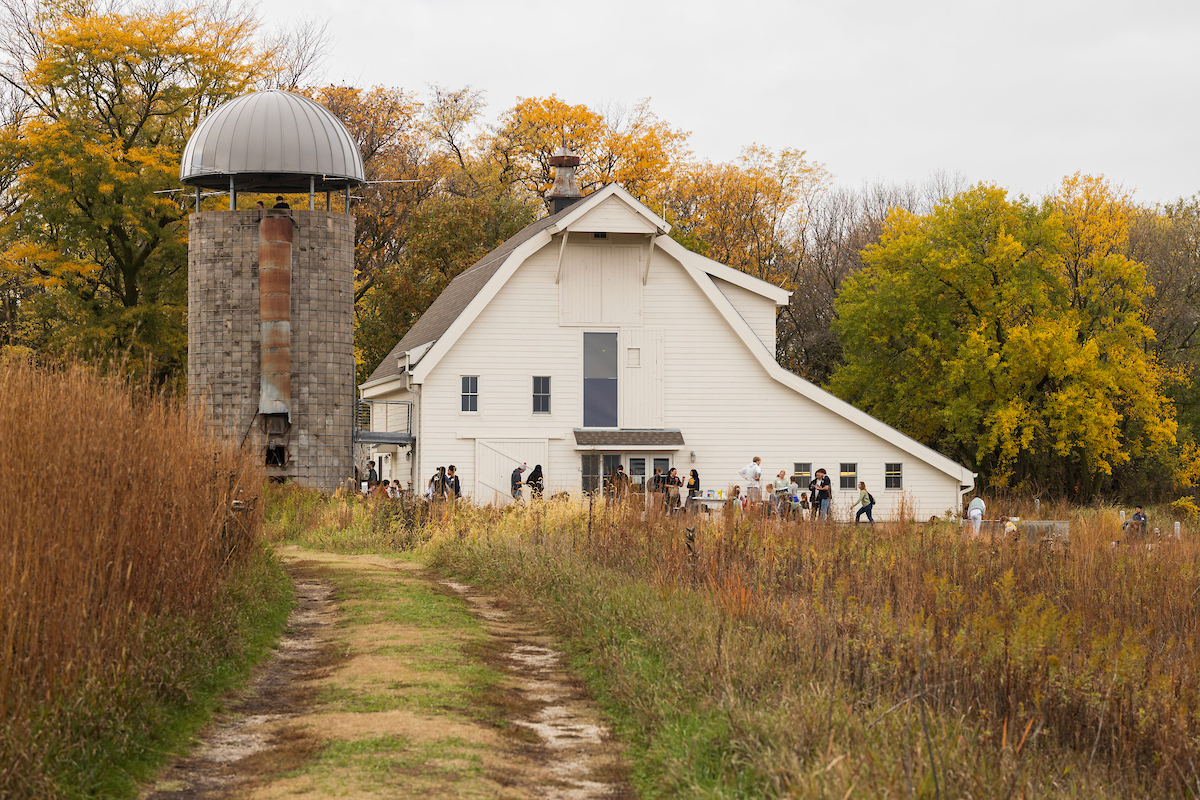Environmental Wellness is occupying and contributing to welcoming, safe, and stimulating environments that support your overall well-being.
The environment in which you live can have a significant impact on your overall well-being. Environmental wellness involves the interaction between our surroundings, community, and self. Being environmentally well means residing in emotionally and physically healthy spaces, nurturing a relationship with the nature surrounding us, feeling welcome and included, and having a space in which you can thrive academically.


Why is Environmental Wellness Important?
Occupying and contributing to a healthy environment impacts our well-being and the well-being of our community. A clean workspace free of distractions can contribute to overall productivity. A welcoming and encouraging environment allows us to discover our true and authentic selves. Contributing to a clean and healthy planet provides us with natural resources.
Self Check-In
- Do you regularly spend time outdoors?
- Do you reduce, reuse, and recycle?
- Do you feel content and/or comfortable in your environments (class, home, work, etc.)?
- Do you participate in events that help your community (food drives, fundraisers, etc.)?
For any of the above questions that you answered no to, try to make that an area of focus to improve your Emotional Wellness. If you have answered no to multiple, you many want to have this dimension be a top priority in order to benefit your overall wellbeing.
Where to start?
- Take our self check-in to assess your environmental wellness! A great place to begin is first to understand where you are in terms of your environmental wellness.
- When working, create a space that is free of distractions, enabling you to focus and be productive.
- If possible, separate your workspace from your relaxing space. Working in the same space you relax can make it difficult to unwind and mentally leave work mode.
- Spend time in nature. Spending time in nature has been shown to ease anxiety and depression, reduce stress and anger, improve memory and focus, and reduce feelings of isolation.
- During the winter months, consider bringing the outdoors inside. Grow an herb garden, place plants throughout your home, get a sun lamp to reduce Seasonal Affective Disorder, and bring in the scents of nature through candles and aromatherapy.
- Create a positive impact in your community! Change starts with people like you deciding to make a difference. Get involved in local causes you care about.
- Both your personal environment and the outdoor environment can be positively impacted by engaging with RecWell.
- Go on an Outdoor Adventure Center trip or attend a workshop to engage with and learn more about connecting to the environment.
- Check out RecWell's webpage to learn more about membership options for faculty and staff.
- Walking is a wonderful form of exercise and means to connect with nature. Check out UNO's walking maps!
- Glacier Creek Preserve is a restored Tallgrass Prairie nature preserve used for research, teaching, and community engagement. It is among the largest of the early prairie restorations that were intended to restore tallgrass prairie, an ecosystem of which less than 1% remains.
- The Barn at Glacier Creek, serves as the preserve's environmental research and education facility that provides classroom space, a field lab, restrooms, and multi-functional space in the hayloft of the second floor that can accommodate over 50 individuals.
- Check out the map!
- ORBT unites smart technology and streamlined travel for faster, more frequent public transportation, serving an eight-mile route along Dodge and Douglas streets from downtown Omaha to Westroads Mall. You can use your MavCARD for free transportation!
- Interested in utilizing the ORBT? Learn more on their website!
- UNO offers a wide range of sustainable transportation options for those that commute to, from, and between UNO campuses. Using sustainable transportation is a great way to reduce traffic, ease parking congestion, and reduce our impact on the environment.
- To learn more, check out Parking & Transit Services' resource!
-
Durango's Advancement and Support Hub, Maverick Food Pantry, and SustainUNO are dedicated to bringing our campus community fresh, healthy produce during the growing season. Our community gardens are located next to the Pepbowl and on the Dodge Campus Housing grounds, and upkeep for these is thanks to our amazing volunteers from all three collaborative groups.
- Interested in learning more? Check out the UNO Community Gardens webpage!
- Located between Kayser Hall & Roskens Hall, this Indigenous Garden is home to native and food producing plants. Interested in learning more? Check out the facebook page to learn more about how to get involved.